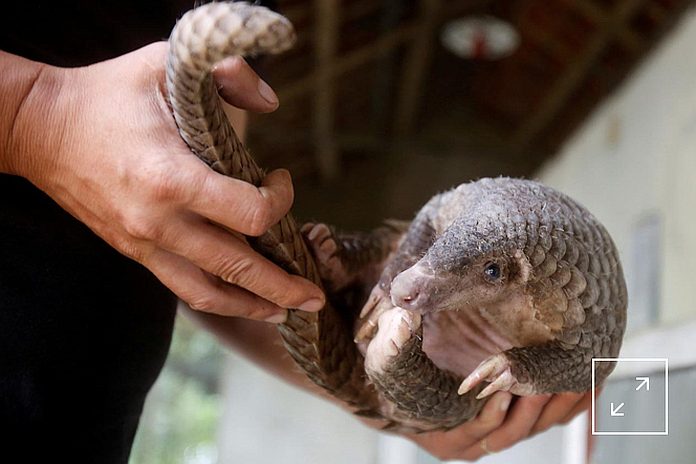By Kate Kelland, Tom Daly
LONDON/BEIJING (Reuters) – Independent scientists questioned research on Friday that suggested that the outbreak of coronavirus disease spreading from China might have passed from bats to humans through the illegal traffic of pangolins.
South China Agricultural University, which said it had led the research, said on its website that the “discovery will be of great significance for the prevention and control of the origin (of the new virus)”.
China’s official Xinhua news agency reported that the genome sequence of the novel coronavirus strain separated from pangolins in the study was 99% identical to that from infected people. It said the research had found pangolins – the world’s only scaly mammals – to be “the most likely intermediate host.”
But James Wood, head of the veterinary medicine department at Britain’s University of Cambridge, said the research was far from robust.
“The evidence for the potential involvement of pangolins in the outbreak has not been published, other than by a university press release. This is not scientific evidence,” he said.
“Simply reporting detection of viral RNA with sequence similarity of more than 99 percent is not sufficient. Could these results have been caused by contamination from a highly infected environment?”
Pangolins are one of Asia’s most trafficked mammals, despite laws banning the trade, because their meat is considered a delicacy in countries such as China and their scales are used in traditional medicine.
The outbreak of disease caused by the new coronavirus, which has killed 636 people in mainland China, is believed to have started in a market in the city of Wuhan that also sold live wild animals.
Virus experts think it may have originated in bats and then passed to humans, possibly via another species.
Jonathan Ball, a professor of molecular virology at Britain’s University of Nottingham, said that while the South China Agricultural University research was an interesting development, it was still unclear “whether or not the endangered pangolin really is the reservoir”.
“We would need to see all of the genetic data to get a feel for how related the human and pangolin viruses are, and also gain an understanding of how prevalent this virus is in pangolins and whether or not these were being sold in the Wuhan wet markets,” he said.
Dirk Pfeiffer, a professor of veterinary medicine at Hong Kong’s City University, also said the research was a long way from establishing a link between pangolins and the new coronavirus outbreak in humans.
“You can only draw more definitive conclusions if you compare prevalence (of the coronavirus) between different species based on representative samples, which these almost certainly are not,” he said.







